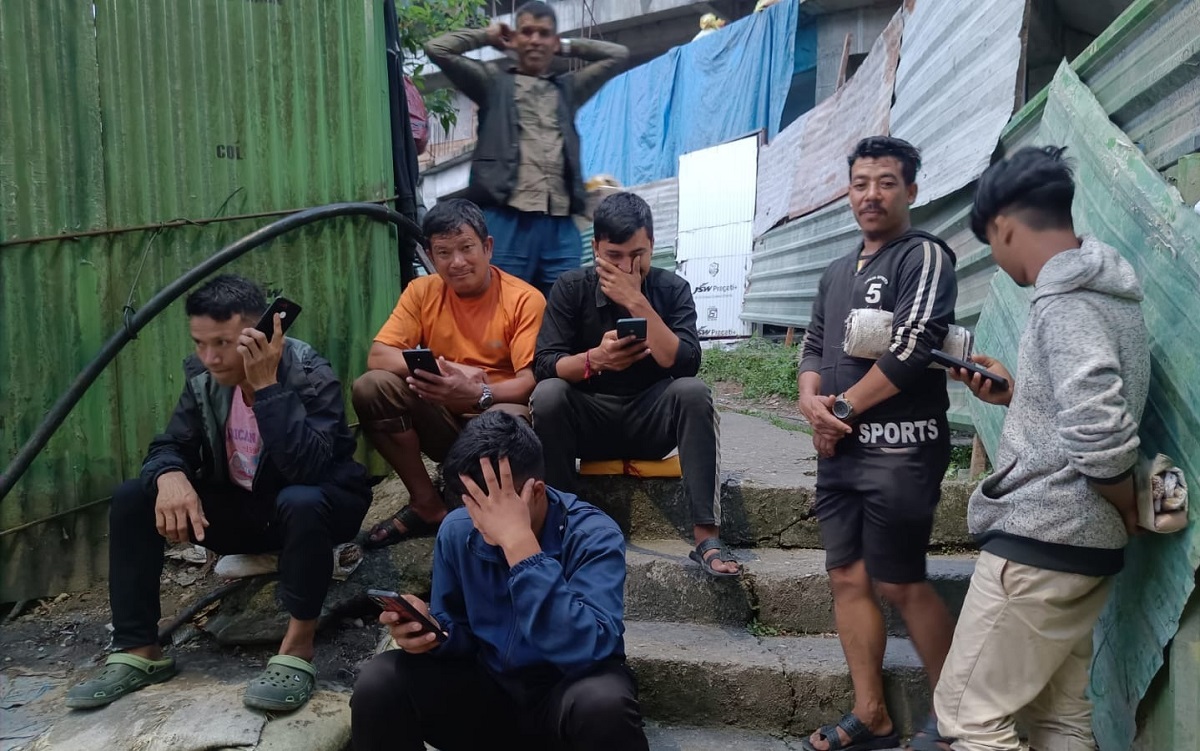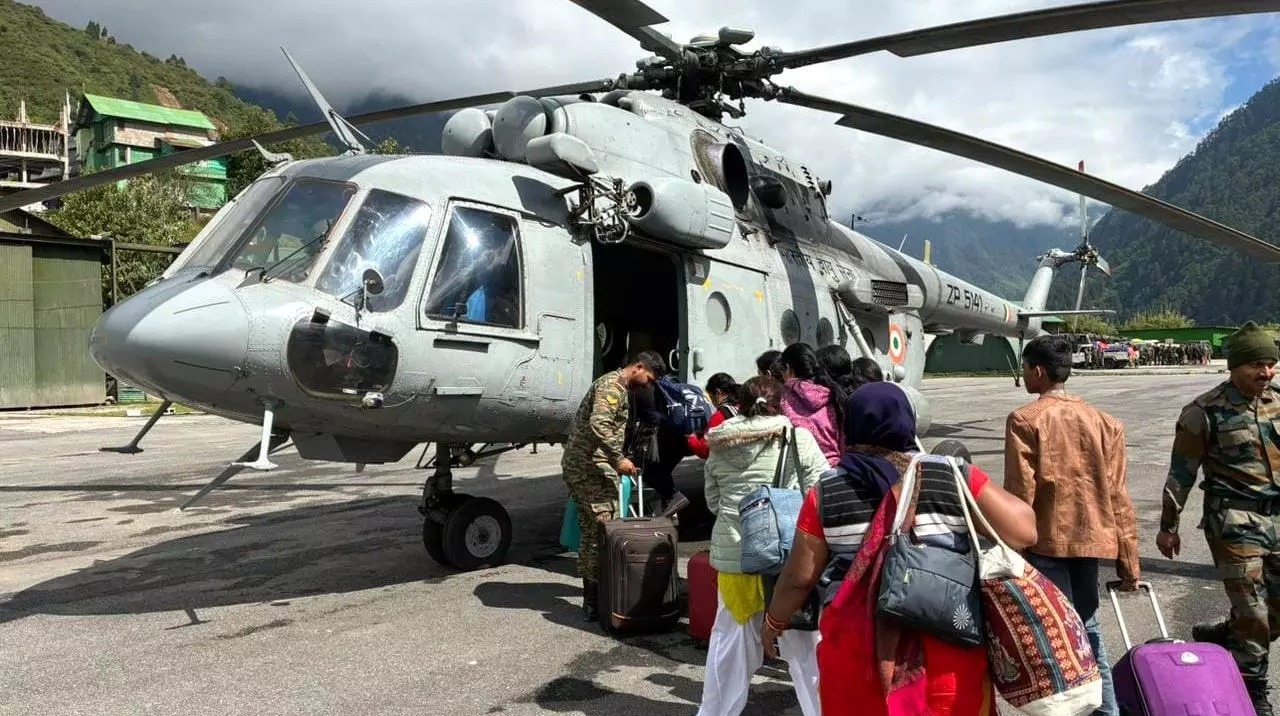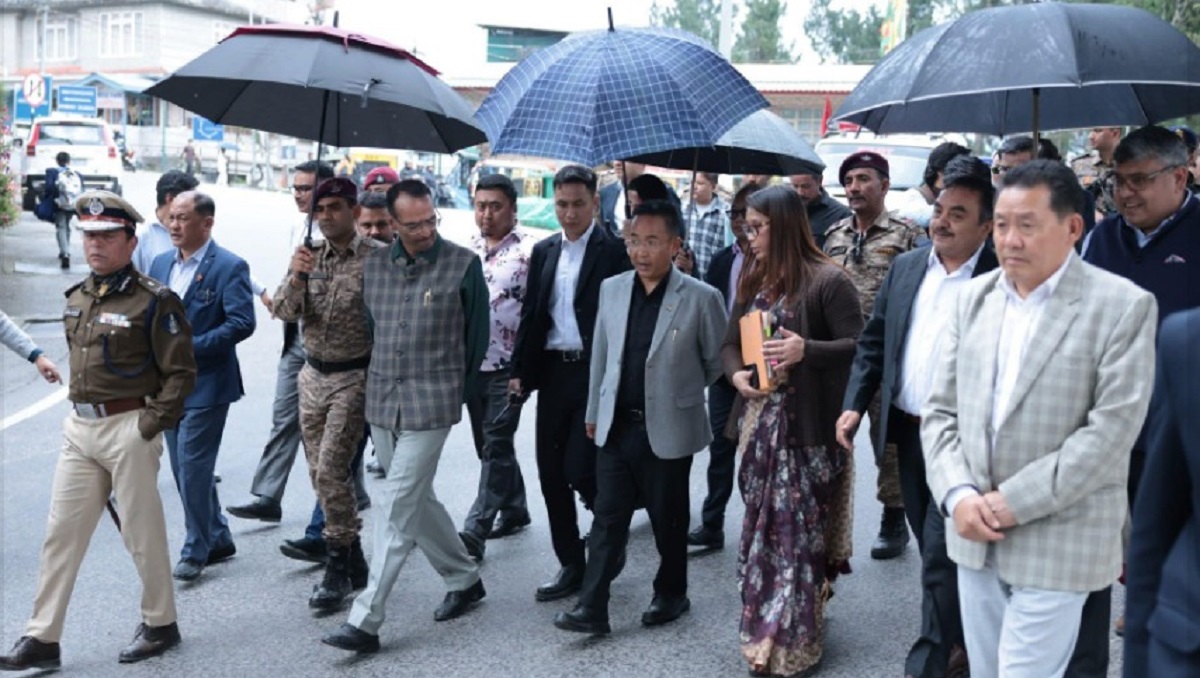The tremors of Nepal’s youth-led protests have travelled far beyond Kathmandu’s streets, reaching the quiet corners of Sikkim where hundreds of Nepalese migrant workers earn their daily bread. On Tuesday evening, a group of porters and daily wage laborers sat on a weathered staircase beside a green corrugated wall in Gangtok, their eyes glued to mobile phone screens. For them, the unrest back home is not just news—it is deeply personal.
The protests, popularly called the “Gen-Z movement,” erupted on September 8 after the Nepal government abruptly banned major social media platforms including Facebook, YouTube, and X. Officials said the move was meant to curb the use of unregistered online platforms, but instead, it sparked fury among the country’s youth, who accused the government of muzzling digital freedom.
What began as peaceful gatherings quickly escalated into violent clashes. Inspired by youth uprisings in Sri Lanka and Bangladesh, thousands of young Nepalis flooded the streets of Kathmandu demanding not only digital rights but also an end to corruption and political stagnation. The situation turned grave after demonstrators stormed the Parliament building. Security forces opened fire in some areas, leading to the deaths of at least 19 people and injuries to hundreds.
The government, shaken by the intensity of the unrest, eventually lifted the social media ban. However, it also imposed a strict curfew in parts of Kathmandu and announced an inquiry into the violence. Despite these measures, tensions remain high as protesters continue to challenge the leadership’s credibility.
For the Nepali workers in Sikkim, many of whom left their villages in search of steady income, the unfolding crisis evokes both fear and hope. Most have parents, siblings, or children still in Nepal. Every message, video, or update arriving through messaging apps carries weight. “Our people are fighting for their rights. We may not be there physically, but our hearts are with them,” said one worker, resting briefly after carrying heavy loads in Gangtok’s bustling market.
The emotional distance has left many restless. Some recalled last year’s devastating floods in Nepal, which had already strained their families back home. Now, with political unrest and bloodshed, their anxieties are doubled. A young porter in Gangtok said he felt helpless: “We work here to send money back, but when I see videos of students and young people being beaten, it breaks me.”
The protests have also drawn attention among locals in Sikkim, who share historical and cultural ties with Nepal. Markets in Gangtok buzzed with conversations about the developments, with many expressing sympathy for the country’s young protesters. “This is a generational struggle. They want a future free of corruption, and that is something every young person deserves,” said a shopkeeper in Lal Bazaar.




